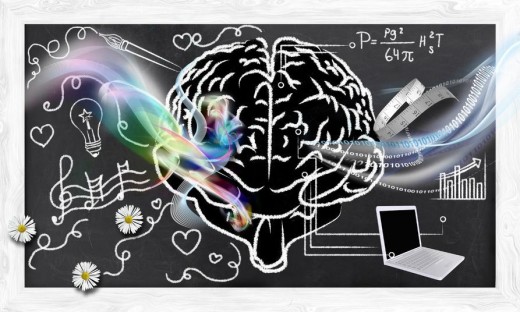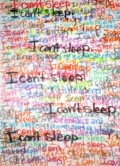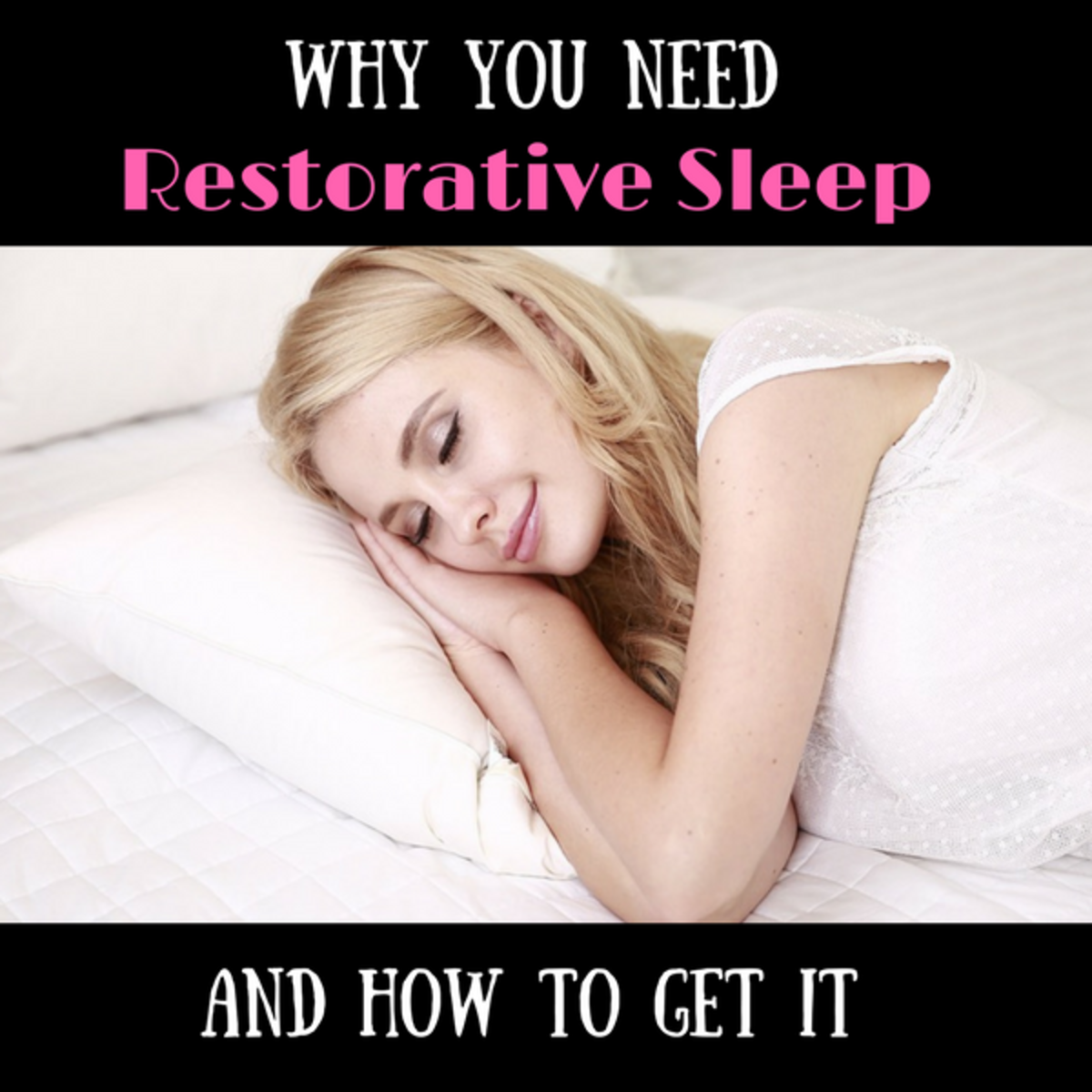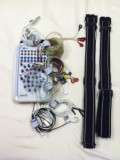How Does Sleep Affect Memory?

For those of you who are attempting to increase memory retention, you may have found many variables that could assist in your venture. The difficulty is finding proven techniques that actually work amidst the influx of subjective information and holistic hearsay. Because of the substantial amount of misinformation out there, this article will focus on one primary means of maintaining memory health.
The focus is on sleep. Sleep is a proven and viable method for keeping your memory and brain in proper order and increasing your current retention shortcomings. You may find it surprising how many individuals neglect sleep and in turn find their memory suffering. Not only can correcting this noticeably maintain your recall abilities, but utilizing particular methods can actually enhance it.
Lack of Focus and Mistakes
Why does it matter when we go to bed or how much sleep we get? When studying or doing cognitively demanding jobs we prepare or become well-trained by routine. Late-night cramming gets many students their degree and working late made me make the deadlines on time. It mattered because sleep and cognition are deeply linked. Working optimally is more effective than working more or longer hours.
You’ve probably felt the effects of too little sleep, at least acutely. You have trouble focusing. For many people, this sets in somewhere around 3:00 pm at work. You lose the sharpness that you had when you first arrived at work and tasks that you know how to do suddenly become tedious or confusing. You might not even realize it is happening until you look back over your work and realize that you have made a series of mistakes that you would never have made if you were not tired.
Why are sleep and cognition so deeply connected? And how do you know if you are getting enough sleep? What are the most common sleep deprivation effects?

Improved Learning and Cognition
The journal Scientific American reported that it is well known that sleep plays an important role in memory and learning. It states that sleep shrinks the brain's synapses to make room for new learning. The brain removes weak connections during sleep to make room for new neuronal connections.
Sleep is necessary to improve your capacity for learning and remembering new things. This adds on to the notion that one of the main roles of sleep is to process the prior day’s information and form memories in the brain. It doesn't only strengthen certain memories and cognition, but also acts as a garbage collector.
Sleep, viewed from this point, shows that sleep doesn’t just help one preserve memory; it is the mode by which memory is retained. In other words, it is in sleep, not while waking, that memories are selected, secured, filed and deleted or solidified in the mind.
Brain Fog and Decision Making
Have you ever heard someone say that they feel “foggy?” lack of sleep or chronic sleepiness can actually slow down your brain’s ability to process information. For example, if you were to solve a math problem, it would take you much longer to solve that problem if you were sleepy than if you were perfectly rested and alert.
It dulls the centers of your brain having to do with logical reasoning and, perhaps more importantly, complex thought. Even simple decisions become difficult to make, as the parts of your brain that govern those abilities cannot function properly when you have not gotten enough sleep.
lack of sleep also affects your ability to both make new memories and to recall existing memories. Sleep psychologists believe that sleep gives the brain time to process all of the information it has collected during the day—sights, smells, and sounds. It is during sleep that our memories are cemented, it embeds what we’ve experienced and learned into short-term memory.
Without enough sleep, the short-term memory begins to fail. Not only will you find yourself having a more difficult time recalling things you once knew, you’ll be less able to make new memories. This is partially because you cannot focus properly while sleepy, but also because your brain does not have the power to embed information into your memory.
This is why people who do not get enough sleep have a difficult time learning even simple subjects. The brain loses its ability to focus and memory is dulled. Without focus and short-term memory, cognition cannot happen.
How Many Hours of Sleep Is Optimal For You?
How Many Hours of Sleep Do I Need
The average amount of sleep that an individual requires can vary in minor amounts according to their physiology. The standard 7-9 hours sleep suggestion from the National Institute of Neurological Disorders and Stroke is a viable gauge for measuring your sleep patterns. If you sleep within an hour either way of this period without interruption, then your body is achieving the healthy sleep it requires.
This constant practice can assist in job performance, honing fine motor skills, and recalling acquired memories from prior experiences. Given that sleep is a relatively uncomplicated action, the best way to achieve it for those that struggle with getting the right amount can be to follow the suggestions below:
- Do not eat 2-3 hours before bedtime.
- Listen to white noise or a non-syncopated rhythm block other sleep altering sounds.
- Refrain from consuming caffeine, alcohol, or cigarettes before preparing to sleep.
- Darken the room. This cues the brain to release hormones that aid in deep sleep retrieval.
- Prepare your sleep environment to be as comfortable and relaxing as possible.
For those that don’t follow a proper sleep regimen, your brain can actually degrade. Neuronal firing suffers, memory loss and reasoning issues occur, and even emotional difficulties arise that impact normal daily activities. The correlation between sleep and memory is very strong for various problems and can severely impact your wellbeing. Therefore it is of the utmost importance that you create a sleep pattern.
This pattern consists of you going to bed and waking up at around the same time each cycle. Once your body acclimates to this, it will develop a habitual pattern autonomous of your conscious actions, easing you into sleep on a steady and expected basis.
Demographic Differences
The right amount of sleep varies from demographic to demographic, with teenagers and children needing the most sleep and adults needing the least—but that’s not to say that they don’t need any sleep at all. How much sleep you need, as an individual may vary slightly from the numbers assigned to your age range.
Many people are productive and happy with only eight hours of sleep, while others need a full nine hours or they are hopeless for most of the day. Those with special health conditions, like obesity or a heart condition, may need more sleep than someone who is in peak physical health. Keep in mind that the following numbers are a general rule only and that finding your perfect number of hours will take some trial and error.
Newborns need the most sleep, at twelve to eight hours per day. Infants are next on the list, with fourteen to fifteen hours of sleep. Toddlers can do alright on twelve hours of sleep, but your one to three-year-old may need upwards of fourteen. Preschoolers (ages three to five) should get eleven to thirteen hours, while those in primary school need only ten to eleven hours. Teenagers need at least eight hours of sleep, but could get upwards of ten.
Adults are at the bottom of the list, needing seven to nine hours on average. Again, the exact number of hours you need will vary depending on your lifestyle, how much caffeine you drink, and your health.
Data Overload and Stress
If you go for more than two days in a row without getting the required amount of sleep, you are likely to start to feel numb and have a number of side effects that relate directly to your cognition. Even if you only get two to three fewer hours of sleep you need ten days in a row, your cognition slows to a snail crawl. Why? Because your brain has not had the “downtime” it needs to properly process all of the information coming in through your throughout the day. It is being overloaded with data and is not being given a chance to fully embed it into your short-term memory.
The differences in resting heart rates of individuals who got enough sleep per night versus those who were sleep-deprived indicated activation of the stress system. Those who were sleep-deprived had higher heart rates and blood pressure—two indications that a person is at risk for heart disease. While some of the most severe side effects do have to do with the brain, there are a number of physical side effects that can be just as damaging.
Those deprived of sleep, even just a few hours a night, can’t remember things they learned just twenty-four hours before, showing a tangible decline in their cognition, as well as their ability to make decisions and or think logically. When you lose sleep, you are effectively dulling your brain, making it impossible to function properly.
Sleep Deprivation and Memory
For people that suffer from lowered job performance, memory loss, and an overall mental fatigue, you may have discovered that you are suffering from sleep deprivation. Thankfully, you have seen that it is not difficult to take the clear steps necessary in order to recover from such a malady.
In order for your mind to perform at peak levels, it must be provided the rest necessary for it to regenerate itself, file memories, process thoughts, and heal. The best way to do that is to make a strict plan for achieving better sleep in a habitual manner so you can perform at your peak levels. Your brain deserves nothing less.
Sources
- Gholipour B. (2017). Sleep Shrinks the Brain’s Synapses to Make Room for New Learning. Scientific American Mind, 2017, 28, 3.
- Niethard N., Burgalossi A., and Born J. (2017). Plasticity during Sleep Is Linked to Specific Regulation of Cortical Circuit Activity. Frontiers in Neural Circuits, 2017, 11, 65.
- Mezick E.J., Matthews K.A. et al. (2014). Sleep Duration and Cardiovascular Responses to Stress in Undergraduate Men. Psychophysiology, 2014, 51, 1, 88-96.
This content is accurate and true to the best of the author’s knowledge and does not substitute for diagnosis, prognosis, treatment, prescription, and/or dietary advice from a licensed health professional. Drugs, supplements, and natural remedies may have dangerous side effects. If pregnant or nursing, consult with a qualified provider on an individual basis. Seek immediate help if you are experiencing a medical emergency.
© 2019 Sam Shepards








